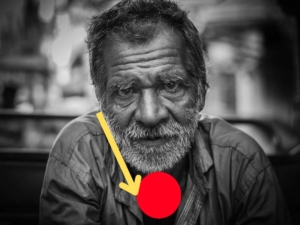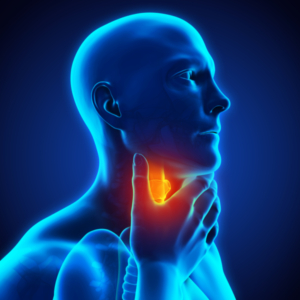GERD in Elderly Patients
GERD in Elderly populations around the planet usually begins as an annoyance for the patient followed by a steep trip downhill if not attentive to symptoms. Dr Matthew Olesiak, MD has worked during residency with many patients that suffered from GERD and is able to speak on this topic at great length. So, buckle in!
GERD in Elderly: Symptoms, Causes, Medications, and Complications
Gastroesophageal Reflux Disease (GERD) affects a significant portion of the elderly population, presenting unique challenges and concerns due to age-related factors. As we age, the risk of developing GERD increases, and the severity of symptoms and complications can be more pronounced. Despite its prevalence, GERD in elderly patients is often overlooked or misdiagnosed due to atypical presentations and a myriad of other age-related health concerns.
This Throat Cleaner throat diseases review of GERD in the elderly population aims to provide a fresh perspective on this complex condition. If you want to read more on throat diseases, check out our common throat infections guide or trouble swallowing disorders guides as well!
By examining the unique challenges faced by elderly patients, we will explore the symptoms, causes, risk factors, and complications associated with GERD, as well as the various
diagnostic and treatment options available. 
Key Takeaways
- GERD in elderly patients requires special considerations due to age-related factors and atypical symptoms.
- Risk factors include defective antireflux barrier, abnormal esophageal clearance, reduced salivary production and delayed gastric emptying.
- Treatment should focus on lifestyle changes, medications and potential invasive or endoscopic therapies with long term management for safety & effectiveness.
GERD in Elderly: Unique Challenges and Concerns
Managing GERD in elderly patients is particularly challenging due to severe manifestations, atypical indications, and age-related elements that can aggravate acid reflux. The lower esophageal sphincter (LES), which serves as the antireflux barrier, may weaken as we age, allowing stomach acid to flow back into the esophagus and cause damage. In addition, elderly patients may experience nocturnal gastroesophageal reflux, which is linked to more severe manifestations and complications of GERD. Risk factors such as hiatal hernias, disrupted esophageal motility, and the use of certain medications can further exacerbate GERD in elderly patients. Moreover, the severity of GERD complications, including erosive esophagitis, esophageal stricture, Barrett’s esophagus, and esophageal cancer, tends to be more pronounced in the elderly demographic. Hence, diagnosing, managing, and treating GERD in elderly patients necessitates a comprehensive understanding of the disease.
Severity and Frequency of Symptoms
Elderly patients may experience more severe GERD symptoms and complications, such as:
- Erosive esophagitis
- Esophageal stricture
- Barrett’s esophagus
- Esophageal cancer
In comparison, younger patients might not face these complications as frequently. However, these patients may also present with fewer typical symptoms, such as heartburn or acid regurgitation, which can make the diagnosis of GERD more difficult. Dysphagia, or difficulty swallowing, is an example of severe or frequent symptoms commonly observed in elderly patients, with 40% to 50% of patients in frail elderly nursing homes experiencing this condition. Diagnosing and treating GERD in elderly patients requires acknowledging the severity and frequency of its symptoms. It is essential for healthcare providers to:
- Be aware of the potential complications
- Take a comprehensive medical history
- Conduct a physical examination
- Request tests such as an endoscopy or barium swallow to accurately diagnose and manage GERD in this population.
Age-Related Factors
Several age-related factors can contribute to the development and severity of GERD in elderly patients. These factors include:
- The prevalence of hiatal hernia
- The weakening of the diaphragmatic “pinch” increase with age, compromising the function of the LES and the elimination of refluxed acid from the distal esophagus
- Elderly patients may experience a decrease in esophageal acid clearance due to disruptions in esophageal motility and saliva production.
Various medications commonly taken by seniors for conditions such as hypertension, cardiovascular disease, pulmonary disease, and depression have been observed to reduce LES pressure. These medications include:
- Nitrates
- Calcium channel blockers
- Benzodiazepines
- Anticholinergic agents
- Antidepressants
All of these medications can be used to treat different medical conditions. Addressing these age-related factors significantly aids in managing and treating GERD in elderly patients.
Identifying GERD Symptoms in Elderly Patients
Identifying GERD symptoms in elderly patients can be challenging due to atypical presentations. In addition to the typical symptoms, such as heartburn, regurgitation, chest pain, and difficulty swallowing, elderly patients may also experience unexpected weight loss, anemia, and gastrointestinal bleeding. Proper diagnosis and treatment of GERD in this population necessitates the recognition of these atypical symptoms.

Sore Throat Illustration. 3D render
Lower esophageal sphincter under observation
A comprehensive medical history, physical examination, and diagnostic tests are necessary for accurately identifying GERD symptoms in elderly patients. The following steps may be taken:
- Endoscopy or barium swallow to assess the condition of the esophagus and stomach.
- pH monitoring to measure the acidity levels in the esophagus.
- Impedance monitoring to assess the movement of liquids and gases in the esophagus.
- Esophageal manometry to measure the pressure and muscle contractions in the esophagus.
These tests can help confirm the diagnosis and determine the appropriate treatment plan for elderly patients with GERD symptoms.
Recognizing Atypical Symptoms of Acid Reflux
Proper diagnosis and treatment of GERD in elderly patients hinge on the recognition of atypical acid reflux symptoms, as they may not present with classic heartburn or acid regurgitation. Atypical symptoms of GERD in this population may include:
- Ear, nose, and throat manifestations such as chronic cough or laryngitis
- Pulmonary symptoms such as asthma
- Cardiac symptoms such as noncardiac chest pain
Identifying GERD in elderly patients who may not exhibit typical symptoms is possible through awareness of these atypical symptoms and their potential implications. A thorough evaluation, including a detailed medical history, physical examination, and appropriate diagnostic tests, is essential in these cases to ensure accurate diagnosis and effective treatment.
Causes and Risk Factors for GERD in Elderly Patients
The elderly patients are more likely to suffer from GERD due to several factors, including:
- Defective antireflux barrier
- Abnormal esophageal clearance
- Reduced salivary production
- Altered esophageal mucosal resistance
- Delayed gastric emptying
One of the most common causes of gastroesophageal reflux disease (GERD) is transient LES relaxations (tLESRs), which can lead to both acid and nonacid reflux. Additionally, nocturnal gastroesophageal reflux is linked to more severe manifestations and complications of GERD, particularly among the elderly population. Proper management and treatment of GERD in elderly patients requires understanding these causes and risk factors. By addressing these factors through lifestyle changes, medication, and potentially invasive or endoscopic therapies, healthcare providers can help patients manage their symptoms and reduce the risk of complications.
Complications and Consequences of GERD in Elderly Patients
Complications of GERD in elderly patients can range from mild esophagitis to severe conditions such as pulmonary aspiration, Barrett’s esophagus, and cancer. Esophagitis is the most frequent complication of GERD in elderly patients, with injury to the esophagus primarily attributed to gastric acid and pepsin. Elderly patients with GERD are more prone to experiencing complications such as:
- Erosive esophagitis
- Esophageal stricture
- Barrett’s esophagus
- Esophageal cancer
Hence, healthcare providers must monitor elderly patients with GERD for potential complications and act accordingly to manage and treat these complications.
Extraesophageal Complications
Extraesophageal complications of GERD, such as atypical chest pain, ENT manifestations, and pulmonary problems, are more common in elderly patients and require thorough evaluation. Atypical noncardiac chest pain in elderly patients with GERD is related to reflux injury in 50% of cases and esophageal dysmotility in 10% of cases. ENT manifestations of GERD in elderly patients may include:
- globus sensation
- laryngitis
- otitis media
- sinusitis
- pharyngitis
- hoarseness
- vocal cord granulomas
- subglottal stenosis
- laryngeal cancer.
GERD is associated with various pulmonary complications in elderly patients. These include:
- Asthma
- Chronic cough
- Chronic bronchitis
- Pulmonary fibrosis
- Aspiration pneumonia
- Sleep apnea
Healthcare providers must be mindful of these extraesophageal complications and their potential effects on patient care.
Diagnosis and Evaluation of GERD in Elderly Patients
Diagnosis and evaluation of GERD in elderly patients may require a more aggressive approach due to the higher incidence of complications. Diagnostic tests that can play a crucial role in evaluating GERD in this population include:
- Barium swallow upper GI series
- Upper GI endoscopy
- Ambulatory pH monitoring
- PPI test
Upper GI endoscopy is an essential procedure in elderly patients with persistent reflux symptoms. It should be seriously considered for all older people presenting with such symptoms. In cases of Barrett’s esophagus, multiple biopsies must be taken. This is necessary in order to determine if dysplasia, the first sign of invasive cancer, is present.. Appropriate management and treatment of GERD in elderly patients necessitates prompt diagnosis and evaluation.
Treatment Options for Elderly Patients with GERD
Treatment options for elderly patients with GERD should balance aggressive treatment with the constraints of comorbidities, focusing on lifestyle changes, medication, and potentially invasive or endoscopic therapies. Lifestyle changes that can help manage GERD symptoms in elderly patients include:
- Weight reduction
- Increased physical activity
- Raising the head of the bed prior to sleep
- Abstaining from eating within three hours of bedtime
In addition, medications such as antacids, H2 blockers, and proton pump inhibitors, including a specific proton pump inhibitor, can also be used to treat GERD in elderly patients. In cases of severe gastroesophageal reflux, GERD complications may arise, making invasive and endoscopic therapies, such as endoscopic mucosal resection, endoscopic suturing, and radiofrequency ablation, necessary.
Lifestyle Changes and Medication
Lifestyle changes and medication are important for initial GERD therapy in elderly patients, while avoiding potentially harmful medications. Dietary modifications, such as:
- avoiding foods that may trigger GERD symptoms
- consuming smaller meals
- refraining from lying down after eating
- abstaining from wearing tight-fitting clothing
are essential for managing GERD symptoms in elderly patients. These medications can provide relief from mild disease: over-the-counter antacids, histamine (H2) blockers and PPI agents. These should only be taken when needed. Certain medications, such as NSAIDs, potassium tablets, bisphosphonates, beta blockers, theophylline, and calcium-channel blockers, can worsen GERD symptoms. It is best to avoid these medications if possible.
Invasive and Endoscopic Therapies
Invasive and endoscopic therapies may be necessary for treating severe GERD complications in elderly patients, such as strictures or Barrett’s esophagus. Invasive techniques, including surgical intervention, can be employed for elderly patients with GERD who have developed these complications. Additionally, endoscopic anti-reflux therapies provide a minimally invasive alternative to manage symptoms. The potential risks and benefits associated with invasive and endoscopic therapies should be carefully considered. Risks include bleeding, infection, and perforation of the esophagus, while potential benefits include improved GERD symptoms and a decreased risk of complications. Determining the most suitable treatment approach requires a thorough evaluation of the patient’s needs and the severity of their GERD complications.
Long-Term Management and Monitoring
Long-term management and monitoring of GERD in elderly patients should focus on ensuring the safety and effectiveness of acid suppression therapy, monitoring for potential effects on nutrient absorption, bacterial proliferation, and drug metabolism. Extended acid suppression may have potential implications on nutrient and calcium absorption, bacterial proliferation, and drug metabolism in the elderly patient. Patients should be vigilantly monitored for potential side effects of acid suppression therapy, including nutrient deficiencies, bacterial overgrowth, and drug interactions. The dose and duration of acid suppression therapy should be judiciously adjusted as required. Blood tests, stool tests, and other tests may be employed to appraise nutrient absorption, bacterial proliferation, and drug metabolism.
Gastroesophageal reflux disease (gerd)
In conclusion, GERD in elderly patients presents unique challenges due to age-related factors, atypical symptoms, and the potential for severe complications. Proper diagnosis, management, and treatment of GERD in this population require a comprehensive understanding of the condition, as well as a proactive approach to evaluate for potential complications. Treatment options should be tailored to the individual patient, balancing aggressive treatment with the constraints of comorbidities. By recognizing the unique challenges faced by elderly patients with GERD and employing appropriate diagnostic tools, treatment options, and long-term management strategies, healthcare providers can help improve the quality of life for elderly patients suffering from this complex condition. With diligence and compassion, we can ensure that our elderly loved ones receive the care and support they need to manage GERD and live their golden years in comfort and health.
Can GERD Lead to Throat Cancer in Elderly Patients?
GERD, or gastroesophageal reflux disease, is not directly linked to throat cancer. However, long-standing and severe GERD can cause chronic irritation and inflammation in the esophagus that may increase the risk of developing Barrett’s esophagus. Barrett’s esophagus can potentially progress to esophageal cancer, which shares some common throat cancer symptoms causes diagnosis treatment prognosis. Regular medical check-ups are essential to monitor and manage any underlying conditions, particularly in elderly patients.
Frequently Asked Questions
What are the symptoms of GERD in the elderly?
The most common primary symptoms of GERD in the elderly are regurgitation, dysphagia, dyspepsia, vomiting, and noncardiac chest pain. Other common symptoms include heartburn, acid regurgitation, backwash, upper abdominal or chest pain, trouble swallowing, and a sensation of a lump in the throat. These may herald more severe disease such as dysphagia, odynophagia, anemia, unexplained weight loss, and gastrointestinal bleeding.
What causes GERD in the elderly?
GERD in the elderly is caused by lifestyle factors such as being overweight, smoking, drinking alcohol or caffeinated beverages, and eating fatty foods. Certain medications, hiatal hernias, impaired motility, decreased saliva volume, and bicarbonate concentration can also weaken the lower esophageal sphincter and contribute to GERD in the elderly.
What is the best medicine for GERD in the elderly?
For elderly patients suffering from GERD, proton pump inhibitors (PPIs) such as esomeprazole, lansoprazole, omeprazole, pantoprazole, rabeprazole, and dexlansoprazole are the most effective medical therapeutic agents for symptom relief. Histamine-2 receptor antagonists (H2RAs) should not replace PPIs unless adverse events or patient preference is a concern.
What are the complications of GERD in the elderly?
GERD complications, such as esophagitis, stricture, Barrett’s esophagus and cancer, are more common in the elderly. Furthermore, pulmonary complications such as asthma, chronic cough, chronic bronchitis, pulmonary fibrosis, aspiration pneumonia and sleep apnea are all increased in prevalence among those aged 65 and over.
What are the unique challenges and concerns of GERD in elderly patients?
Elderly patients with GERD are at a greater risk of more severe symptoms and complications, fewer typical symptoms, and can be more greatly affected by age-related factors.
Dr. Matthew Olesiak continues to make a significant impact in the medical field through his work at SANESolution and his dedication to evidence-based practices.




